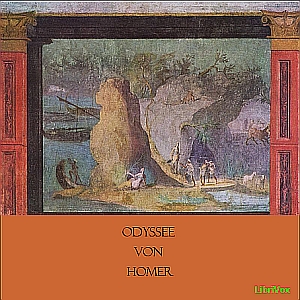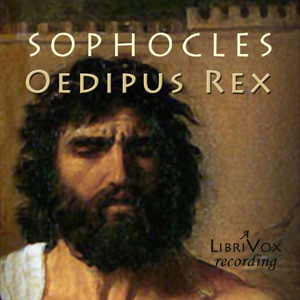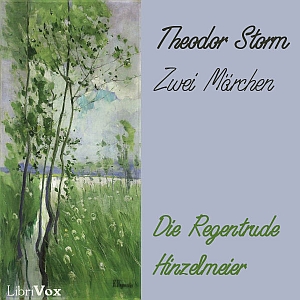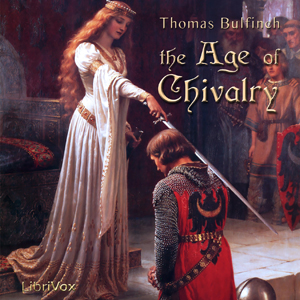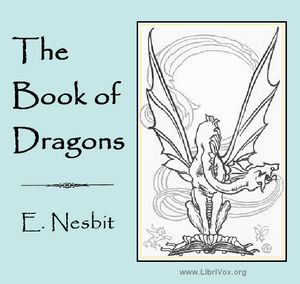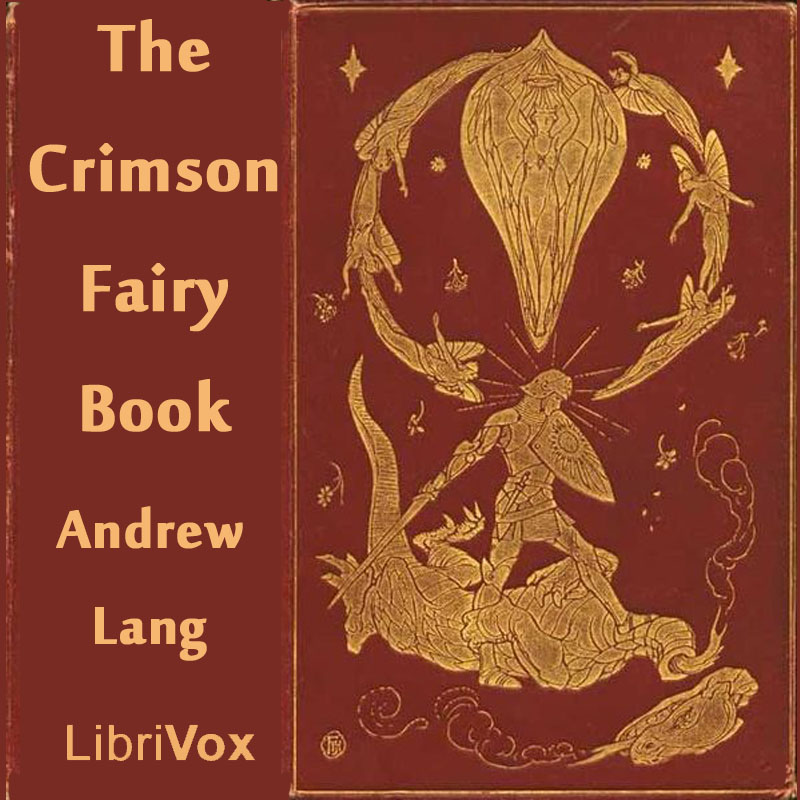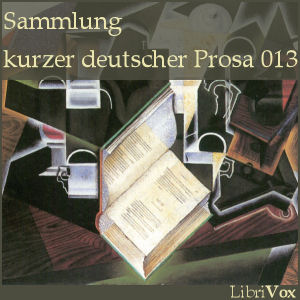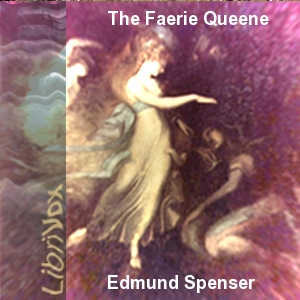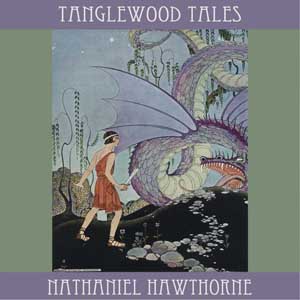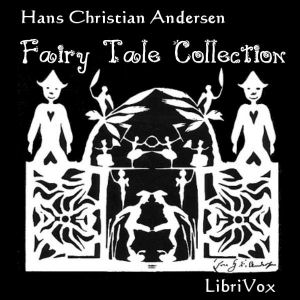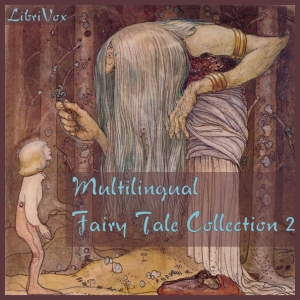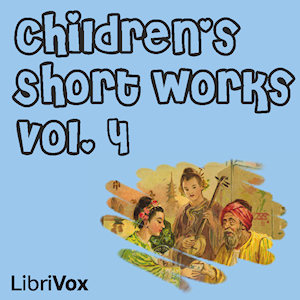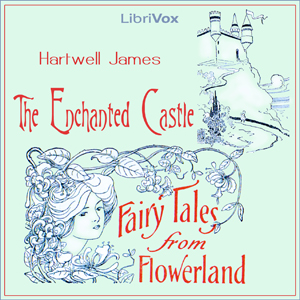La Comtesse de Ségur nous livre ici quelques récits qui avaient tant amusés ses petites-filles. L'on y découvre des enfants bien curieux, bien courageux, bien vertueux, avec leurs bonnes et mauvaises fées. Elles les feront passer par des épreuves bien difficiles... Here are a few tales that entertained the countess of Ségur's grand-daughters. We meet with very inquisitive, very brave, very kind children, with their good and bad fairies. They will have them go through great ordeals... (Summary by Ezwa)
19 episodes
Le Morte d’Arthur (spelled Le Morte Darthur in the first printing and also in some modern editions, Middle French for la mort d’Arthur, “the death of Arthur”) is Sir Thomas Malory’s compilation of some French and English Arthurian romances. The book contains some of Malory’s own original material (the Gareth story) and retells the older stories in light of Malory’s own views and interpretations. First published in 1485 by William Caxton, Le Morte d’Arthur is perhaps the best-known work of English-language Arthurian literature today. Many modern Arthurian writers have used Malory as their source, including T. H. White for his popular The Once and Future King. (Summary from Wikipedia))
53 episodes
« Le second livre des Fables de La Fontaine confirme le grand talent du plus célèbre fabuliste. Son art achevé de l'expression du verbe qu'il place dans la bouche d'un règne animal complice malgré lui de nos travers, ajoute au plaisir d'une langue savoureuse maniée avec la plus grande dextérité. Allez! avez-vous le goût difficile? » (Jean Lambert)
20 episodes
The brave warrior, Beowulf, comes to the aid of King Hrothgar when he hears that Grendel, a horrible monster, is terrorizing the inhabitants of Hart Hall. Beowulf heroically battles Grendel, the Water Witch, and a fierce dragon. (Summary by Laura Caldwell)
11 episodes

Andrew Lang's Fairy Books or Andrew Lang's "Coloured" Fairy Books constitute a twelve-book series of fairy tale collections. Although Andrew Lang did not collect the stories himself from the oral tradition, the extent of his sources, who had collected them originally (with the notable exception of Madame d'Aulnoy), made them an immensely influential collection, especially as he used foreign-language sources, giving many of these tales their first appearance in English. As acknowledged in the prefaces, although Lang himself made most of the selections, his wife and other translators did a large portion of the translating and telling of the actual stories."The irony of Lang's life and work is that although he wrote for a profession—literary criticism; fiction; poems; books and articles on anthropology, mythology, history, and travel ... he is best recognized for the works he did not write."[1]
Many of the books were illustrated by Henry J. Ford, Lancelot Speed, and G. P. Jacomb-Hood also contributed some illustrations.
47 episodes
Odyssee von Homer (vermutlich gegen Ende des 8. Jahrhunderts v. Chr.)
Ein Meisterwerk. Gilt als eines der ältesteten erhaltenen Werke der abendländischen Literatur. Voß übersetzte das die Erlebnisse des Odysseus und seiner Gefährten auf der Heimfahrt nach dem Trojanischen Krieg erzählende Epos aus dem Altgriechischen ins Deutsche (erschienen 1781). Aufgrund dieses Werkes bezeichnet man im Deutschen mit Odyssee, wie mit dem entsprechenden Wort in vielen anderen Sprachen, eine Irrfahrt. (Zusammenfassung von redaer)
25 episodes
Stories of King Arthur and His Knights
retold from Malory's "Morte dArthur" (Full title of book)
43 episodes
Voici le sixième des douze livres des Fables de La Fontaine. Celles-ci datent du XVIIe siècle et sont lues par des lecteurs de divers horizons. This is the sixth book from a collection of 12. The fables were written and first published in the 17th century. They portray humans' behaviour in the society. (Summary by Ezwa)
22 episodes
« Il arrivera possible que mon travail fera naître à d’autres personnes l’envie de porter la chose plus loin » affirmait La Fontaine dans la préface de son premier recueil des fables. Effectivement, l'ensemble des fables du moraliste est si vaste et d'une telle richesse qu'il a fait naître en moi l'envie de vous proposer ma lecture du livre 6. Fut-elle parcellaire, modeste, j'espère du moins qu'elle vous apportera autant de joie que j'ai eu à la réaliser. (par Sylvie)
22 episodes
Au milieu du XVIIième siècle, le grand Fabuliste français Jean de La Fontaine éleva la fable au rang de genre littéraire par l'art achevé de son écriture qui, pour autant, ne gâche pas le plaisir du lecteur de reconnaître ses semblables sous les traits du genre animal et à bien rire de ces petites histoires où les travers des hommes affleurent. Le rire, n'est-ce pas l'une des meilleures avenues de la pédagogie? En voici la preuve avec ce troisième livre. (Résumé par Jean Lambert)
18 episodes
Цикълът разкази "Старопланински легенди" съдържа десет творби, в чийто сюжетен център стоят любовта, истината, добротата, нравствеността и красотата. Легендите ни пренасят в стари, хайдушки времена, под величествените върхари на Стара Планина. Ten classical short stories about love, truth, goodness, morality and beauty, taking us back to the days of yore in the bosom of the Old Mountain Balkan, written in 1926-1927 by the Bulgarian writer Yordan Yovkov. (Summary by Euthymius)
10 episodes
Also known as "A Double Story" or "The Wise Woman."
The story of two very spoiled girls, a princess and a peasant, who are kidnapped by a strange woman for a lesson in life. They may not emerge the same... but will their parents be changed for the better too? (Summary by Cheyenne)
14 episodes
Oedipus the King (often known by the Latin title Oedipus Rex) is an Athenian tragedy by Sophocles that was first performed c. 429 BC. It was the second of Sophocles's three Theban plays to be produced, but it comes first in the internal chronology, followed by Oedipus at Colonus and then Antigone. Over the centuries, it has come to be regarded by many as the Greek tragedy par excellence. (Summary by Wikipedia)
Cast:
Oedipus: Andy Minter
Priest of Zeus: Hannah Dowell
Creon: Fr. Richard Zeile
Teiresias: BrianaTheBard
Jocasta: Leni
Messenger: Carolyn Francis
Second Messenger: pipsoul
Herd of Laius: hefyd
Chorus: Musicalheart1
Narrator: Elizabeth Klett
Audio edited by: Elizabeth Klett
2 episodes
Die Regentrude
Einen so heißen Sommer hat es schon seit hundert Jahren nicht mehr gegeben. Das Gras vertrocknet auf den Wiesen und das Vieh verdurstet. Mutter Stine ist sich sicher, die Regentrude muss eingeschlafen sein. Ihr Sohn Andrees und die junge Maren machen sich zusammen auf, den Feuerteufel zu überlisten und den Weg zur schlafenden Regentrude zu finden.
Hinzelmeier
Der kleine Hinzelmeier ist gar nicht erstaunt darüber, dass seine Eltern immer jung und schön bleiben. Als er fast erwachsen ist, erfährt er das Geheimnis seiner Familie und macht sich auf in die Welt, um ein Handwerk zu lernen und jenen geheimnisvollen Garten zu finden, in dem eine Rosenjungfrau auf ihn wartet, die auch ihm ewige Jugend und Glück bringen kann.
(Summary by Hokuspokus)
7 episodes

Het episch dierdicht "Van den Vos Reynaerde", geschreven in het Middelnederlands in de 13e eeuw, geldt als een hoogtepunt in de Nederlandse middeleeuwse literatuur. Het epos verhaalt van de schurkenstreken van Reinaert de Vos, die zo listig is dat hij iedereen weet beet te nemen.Deze vertaling uit 1885 is van Julius de Geyter. Uit zijn inleiding:"Reinaart de Vos, dat meesterstuk onzer Letterkunde, bestaat uit twee deelen: het eene, dat men gewoonlijk het eerste boek noemt, is omtrent den jare 1250 in Vlaanderen geschreven door een man van genie; het zoogenaamde tweede boek, ongeveer 150 jaren later waarschijnlijk ook door een Vlaming opgesteld, is nauwelijks het werk van een man van talent. De eerste onzer beide dichters, zooals d'eposschrijvers immer deden, had al d'avonturen van zijnen held bijeengezameld, er met een meesterhand de grondstof uitgegrepen, en ze tot een kunstjuweel verwerkt. Naar zijn eigen oordeel, was zijn gedicht gansch de geschiedenis van Reinaart, wat er dan ook over dezen nog meer was geschreven of in den mond des volks voortleefde.Onze tweede schrijver, anderhalv' eeuw nadien, heeft nu juist dat overtollig geoordeelde ook te boek gesteld, en begin en slot van zijns voorgangers meesterstuk veranderd, om er zijn vervolg min of meer passend te kunnen aansluiten."Deze vertaling omvat alleen het zogenaamde "eerste boek".Reading of a 19th century Dutch translation of a 13th century Middle Dutch rhymed version of the story of Reynard the Fox.
8 episodes
Reineke Fuchs ist ein Epos in zwölf Gesängen. Goethe gab dem Werk stark spöttische, mitunter boshafte Züge; sein Epos kann durchaus auch als Kritik des höfischen Lebens gelesen werden, das er gut kannte. (aus Wikipedia)
12 episodes
Voici le douzième et dernier livre des fables de Jean de La Fontaine. Il est, avec le livre huitième, le plus volumineux, comptant 27 fables . Contrairement à ses premiers livres dont les textes sont courts et vifs, ceux de ce dernier livre sont longs et parfois lourds. On sent que le fabuliste désire passer plusieurs messages aux lecteurs, au premier chef, à l'élite sociale et politique de son milieu. Les animaux continuent de tenir la vedette de ces vers où s'épanouissent les travers des hommes. (de Jean Lambert)
34 episodes
Thomas Bulfinch explains the his work is "an attempt to tell the stories of mythology in such a manner as to make them a source of amusement. We have endeavored to tell them correctly, according to the ancient authorities, so that when the reader finds them referred to he may not be at a loss to recognize the reference. Thus we hope to teach mythology not as a study, but as a relaxation from study; to give our work the charm of a story-book, yet by means of it to impart a knowledge of an important branch of education."
The Bulfinch version of myth, presents the myths in their literary versions, without unnecessary violence, sex, psychology or ethnographic information. The Bulfinch myths are an indispensable guide to the cultural values of the American 19th century. (Summary from Wikipedia)
38 episodes
Voici le septième des douze livres des Fables de La Fontaine. Celles-ci datent du XVIIe siècle et sont lues par des lecteurs de divers horizons. This is the seventh book from a collection of 12. The fables were written and first published in the 17th century. They portray humans' behaviour in the society. (Summary by Ezwa)
19 episodes
Helena Nyblom was born in Denmark. But in 1864 she Married University Doctor Carl Rupert Nyblom and moved to Uppsala, Sweden. Her debut as a story- and fairytale writer was in 1897, when she was 54 years old. She was a very productive and popular author around 1900 and in the early 20th Century. Alienation, lack of understanding, appreciation and sympathy, and the conflict between doing ones duty and freedom were often underlying themes of her stories. This collection of Fairy tales under the name “Ja och Nej” (Yes and No) were published in the “Barnbilioteket Saga” (Children's Story Library) series in 1908 consisting of 8 Stories / Fairy tales and are a good example of her writings. (Summary by Lars Rolander)
8 episodes
Brødrene Jakob og Wilhelm Grimm, samlede og nedskrev mere end tohundrede folkeeventyr tilbage i 1820’erne. Mange af os erindrer, at have fået de mest berømte af disse historier læst højt som børn.
Også som voksen, kan man imidlertid have glæde af et genhør af disse fortællinger og dermed opleve, eller genopleve, moralerne, humoren og dramaet i et anderledes perspektiv, end det man ser mens man er barn. Denne samling rummer et lille udvalg af både kendte og mindre kendte Grimm eventyr. (Summary by Kristoffer Hunsdahl)
12 episodes
Hauffs Märchen entstanden in der Spätromantik. Der zweite Band um den Scheik von Alessandria und seine Sklaven verlässt den rein orientalischen Handlungsraum; Zwerg Nase und zwei von Wilhelm Grimm übernommene Märchen (in dieser Aufnahme nicht enthalten) stehen in der europäischen Märchentradition.(Summary by Wikipedia)Der Scheik von Alessandria und seine Sklaven (Rahmenerzählung)Der Zwerg NaseAbner, der Jude, der nichts gesehen hatDer Affe als MenschDie Geschichte Almansors
13 episodes
A dragon who flies out of a magical book; one whose purr quiets a fussy baby; another who eats an entire pack of tame hunting-hippopotomuses: These eight dragon tales are filled with the imaginative wit of children's author Edith Nesbit. (Summary by Laurie Anne Walden)
8 episodes
The Crimson Fairy Book contains thirty-six stories collected from around the world and edited by Andrew Lang. Many tales in this book are translated, or adapted, from those told by mothers and nurses in Hungary; others are familiar to Russian nurseries; the Servians are responsible for some; a rather peculiarly fanciful set of stories are adapted from the Roumanians; others are from the Baltic shores; others from sunny Sicily; a few are from Finland, and Iceland, and Japan, and Tunis, and Portugal. No doubt many children will like to look out these places on the map, and study their mountains, rivers, soil, products, and fiscal policies, in the geography books. The peoples who tell the stories differ in colour; language, religion, and almost everything else; but they all love a nursery tale. The stories have mainly been adapted or translated by Mrs. Lang, a few by Miss Lang and Miss Blackley. (Summary from the preface)
37 episodes
C'est ainsi que commence ce conte de fées : « Il y avait une fois un pauvre homme et une pauvre femme qui étaient bien vieux, et qui n'avaient jamais eu d'enfants : c'était un grand chagrin pour eux, parce qu'ils prévoyaient que dans quelques années ils ne pourraient plus cultiver leurs fèves et les aller vendre au marché. Un jour qu'ils sarclaient leur champ de fèves pour ôter les mauvaises herbes, la vieille découvrit dans un coin, sous les touffes les plus drues, un petit paquet fort bien troussé qui contenait un superbe garçon de huit à dix mois, comme il paraissait à son air, mais qui avait bien deux ans pour la raison, car il était déjà sevré. Tant il y a qu'il ne fit point de façons pour accepter des fèves bouillies qu'il porta aussitôt à sa bouche d'une manière fort délicate. » (Extrait)
2 episodes
»Wissen Sie, sie sind jetzt beide in dem Alter, die Kinder, wo sie den ganzen Tag fragen. Zum Beispiel: Spricht der liebe Gott auch chinesisch? und: Wie sieht der liebe Gott aus? Immer alles vom lieben Gott! Darüber weiß man doch nicht Bescheid –.« »Nein, allerdings,« stimmte ich bei, »man hat da gewisse Vermutungen...« »Oder von den Händen vom lieben Gott.«
»Ja« – beeilte ich mich anzufügen, – »von den Händen ist mir allerdings einiges bekannt. Zufällig – ich will Ihnen erzählen, was ich weiß. Wenn Sie einen Augenblick Zeit haben, ich begleite Sie bis zu Ihrem Hause, das wird gerade reichen.« (Rainer Maria Rilke)
13 episodes
Diese Sammlung umfasst 10 deutschsprachige Prosa-Texte verschiedener Genres.
Eine Liste weiterer kurzer Aufnahmen (Erzählungen, Gedichte, Märchen, Essays) in anderen LibriVox Sammlungen gibt es hier.
10 episodes
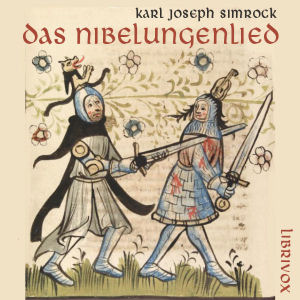
Das Nibelungenlied ist ein mittelalterliches Heldenepos und wurde oft als „Nationalepos der Deutschen“ bezeichnet. Es entstand zu Beginn des 13. Jahrhunderts und wurde in der damaligen Volkssprache Mittelhochdeutsch geschrieben.
Das Epos erzählt von der Liebe zwischen dem Drachentöter Siegfried und der burgundischen Prinzessin Kriemhild, von der Brautwerbung des burgundischen Königs Gunther um die isländische Königin Brunhild, vom Verrat der Burgunden an Siegfried und dessen Ermordung durch Hagen. Später ist der Schauplatz der Handlung das Land der Hunnen unter König Etzel, den Kriemhild in zweiter Ehe geheiratet hat. Kriemhild benutzt ihre neue Position, um mithilfe der Hunnen Siegfrieds Tod an Hagen und allen Burgunden zu rächen.
Die Übersetzung Karl Joseph Simrocks gehört zu den bekanntesten Übertragungen des alten Textes in die neuhochdeutsche Sprache.
The Nibelungenlied (Song of the Nibelungs) is a medieval epic poem and has been often referred to as the German “national epic”. It was written down in the early 13th century in Middle High German, the vernacular of the time.
The epic tells of the love between the dragon-slayer Siegfried and the Burgundian princess Kriemhild, how Gunther, King of Burgundy, courts Brunhild of Iceland, and how Siegfried is betrayed by the Burgundians and murdered by Hagen. The scene of the story later shifts to the land of the Huns of King Etzel, Kriemhild’s husband in second marriage. Kriemhild uses her new position among the Huns to avenge Siegfried’s death on Hagen and all the Burgundians.
The translation of Karl Joseph Simrock is one of the best-known New German versions of the old text. (Summary by Al-Kadi)
39 episodes
'The Sixth Book of the Faerie Queene contayning the Legende of S, Calidore or of Cvrtesie.'
Apart from Books 1-6, the only surviving section of the Faerie Queene is a short isolated fragment known as the Mutabilitie Cantos (traditionally numbered Book 7, cantos 6-8); this fragment is also included in the present recording. Although the Faerie Queene was never completed, it continues to be one of the most beautiful and important works of literature ever written. Spenser wrote it as a paean to the Virgin Queen Elizabeth, and to the golden age which she had brought to England. Sponsored by Sir Walter Raleigh and commended by the foremost literary minds of his day, Spenser's book remains one of the crowning poetic achievements of the Elizabethan period.(Summary by Annise)
16 episodes
The Fifth Book of the Faerie Queene contayning the Legende of Artegall or of Ivstice.This masterpiece was never completed, but it continues to be one of the most beautiful and important works of literature ever written. Spenser wrote it as a paean to the Virgin Queen Elizabeth, and to the golden age which he believed she had brought to England. Sponsored by Sir Walter Raleigh and commended by the foremost literary minds of his day, Spenser's book remains one of the crowning poetic achievements of the Elizabethan period.
14 episodes
"The Fovrth Book of the Faerie Queene contayning the Legende of Cambel and Telamond or of Friendship."
The Faerie Queene was never completed, but it continues to be one of the most beautiful and important works of literature ever written. Spenser wrote it as a paean to the Virgin Queen Elizabeth, and to the golden age which she had brought to England. Sponsored by Sir Walter Raleigh and commended by the foremost literary minds of his day, Spenser's book is considered one of the crowning poetic achievements of the Elizabethan period.(Summary by Annise)
13 episodes
"The Third Book of the Faerie Queene contayning the Legende of Britomartis or of Chastitie."
The Faerie Queene was never completed, but it continues to be one of the most beautiful and important works of literature ever written. Spenser wrote it as a paean to the Virgin Queen Elizabeth, and to the golden age which she had brought to England. Sponsored by Sir Walter Raleigh and commended by the foremost literary minds of his day, Spenser's book remains one of the crowning poetic achievements of the Elizabethan period.(Summary by Annise)
13 episodes
The Second Booke of the Faerie Queene contayning The Legende of Sir Guyon or of Tempaurance. The Faerie Queene was never completed, but it continues to be one of the most beautiful and important works of literature ever written. Spenser wrote it as a paean to the Virgin Queen Elizabeth, and to the golden age which she had brought to England. Sponsored by Sir Walter Raleigh and commended by the foremost literary minds of his day, Spenser's book remains one of the crowning poetic achievements of the Elizabethan period.(Summary by Annise)
13 episodes
All mythology and/or Hawthorne lovers unite!
Here is a delightful collection of charming stories from Greek Mythology. This collection features some very popular characters like our beloved Jason, Ulysses, King Pluto and Theseus (and of course, our favorite, Mr. Minotaur, too). Written in Hawthorne's interesting and beautiful style, these stories will be a great delight to read AND listen to. (Summary by Neeru Iyer)
19 episodes
These are 25 fairy tales written by Hans Christian Andersen - A collection of something for everyone - the very popular stories, the less well-known stories and favorites, that both children and grownups can enjoy.(Summary by Neeru Iyer)
25 episodes
Caroline Auguste Fischer geb. Venturini war eine deutsche Schriftstellerin und Frauenrechtlerin. Sie schreibt mit viel Witz und Ironie. In ihren Märchen karikiert sie die Marotten ihren Mitmenschen und nimmt die Affektiertheit des Hoflebens aufs Korn.
(Summary by Wikipedia und Hokuspokus)
5 episodes
In LibriVox’s Multilingual Fairy Tale Collection, LibriVox volunteers read their favourite public-domain fairy tales. This is a collection of 14 fairy tales in 6 languages recorded by a variety of LibriVox members.
14 episodes
A short story about a boy who befriends a cat and then sets off on an adventure to rescue a dragon
10 episodes
Librivox’s Children’s Short Works Collection 003: a collection of 10 short works for children in the public domain read by a variety of Librivox members.
10 episodes
Bulfinch (July 15, 1796 - May 27, 1867) explains the his work is "an attempt tell the stories of mythology in such a manner as to make them a source of amusement. We have endeavored to tell them correctly, according to the ancient authorities, so that when the reader finds them referred to he may not be at a loss to recognize the reference. Thus we hope to teach mythology not as a study, but as a relaxation from study; to give our work the charm of a story-book, yet by means of it to impart a knowledge of an important branch of education."
The Bulfinch version of myth presents the myths in their literary versions, without unnecessary violence, sex, psychology or ethnographic information. The Bulfinch myths are an indispensable guide to the cultural values of the American 19th century. (Summary from Wikipedia)
This is the third of Bulfinch's series of three mythologies. LibriVox recordings of the first two books are at:
The Age of Fable
The Age of Chivalry
30 episodes
This is a collection of folk tales originating in Canada, some from aboriginal oral tradition and others due to early French, Scottish, Irish and British colonists. They are presented as "fables" though many are without obvious moral. (Summary by Sean Michael Hogan)
33 episodes

George MacDonald claimed that he did not write for children, but for the child-like. Some of his longer works are clearly intended for adults, and this fantastic fiction influenced later writers such as G.K. Chesterton, J.R.R. Tolkien and C.S. Lewis. But you can find some of his best writing in the stories aimed squarely at children, and these are three of the finest.
The Light Princess. A wicked aunt curses her baby niece so that gravity has no effect on her, and she floats through the air as if it were water.The only way to break the curse is to make the princess cry.
The Giant's Heart. Two children argue and run away to Giantland. There they find out that one of the Giants steals children from the land of men and eats them, but how can they kill the Giant when he has hidden his heart where no one can find it?
The Golden Key. A boy discovers a Golden Key, but cannot find the lock. He meets a girl, and together they search for the land from where the shadows fall, hoping that the key will allow them in.
Summary by Clive Catterall)
8 episodes
Librivox’s Children’s Short Works Collection 004: a collection of 11 short works for children in the public domain read by a variety of Librivox members.
11 episodes
The object of this volume is to excite interest in one of the greatest poems of English literature, which for all its greatness is but little read and known--to excite this interest not only in young persons who are not yet able to read "The Faerie Queene," with its archaisms of language, its distant ways and habits of life and thought, its exquisite melodies that only a cultivated ear can catch and appreciate, but also in adults, who, not from the lack of ability, but because they shrink from a little effort, suffer the loss of such high and refined literary pleasure as the perusal of Spenser's masterpiece can certainly give. (From the Author's introduction)
23 episodes
Angelehnt an dänische, deutsche und griechische Sagen und historische Begebenheiten, dem Volksglauben verbunden und inspiriert von literarischen Strömungen seiner Zeit, schuf Andersen die bedeutsamsten Kunstmärchen des Biedermeier. Andersens Märchen sind nicht nur zeitlos; sie gehören mittlerweile zur Weltliteratur. (Summary by Wikipedia)
59 episodes
This book is intended to give the reader an account of the origin and history of Hallowe'en, how it absorbed some customs belonging to other days in the year,—such as May Day, Midsummer, and Christmas. The context is illustrated by selections from ancient and modern poetry and prose, related to Hallowe'en ideas. (Summary by Ruth Kelley, from the Preface).
16 episodes
Every boy and girl—and for that matter every man and woman, too—rejoices when the winter snows have vanished and the earth once more puts on her beautiful dress of green, for then the flowers wake from their sleep and clothe the earth with beauty.
Because all boys and girls love flowers, those of them who read this book will be interested in the beautiful stories they have to tell, loving them even more when they know something of their past history and some of the events with which they are associated. (Summary from book introduction)
14 episodes
Hans Christian Andersen, Charles Perrault, les frères Grimm : autant d’auteurs d’exception dont les contes et autres histoires ont captivé des générations d’enfants, petits et grands. Dans le premier volume de cette collection d’histoires et de contes préférés des enfants, vous découvrirez (ou redécrouvrirez) vingt de ces récits, tantôt très populaires, tantôt moins connus. Ouvrez toutes grandes vos oreilles, et laissez-vous transporter ! (Description par ani poirier)
20 episodes
Balder Dead" is a beautiful epic poem by Matthew Arnold. It draws from Norse mythology to retell the story of the the death of Odin's son, Balder, instigated by the treacherous jealousy of Loki. (Summary by Nathan)
3 episodes
Voici le huitième des douze livres des Fables de La Fontaine. Celles-ci datent du XVIIe siècle et sont lues par des lecteurs de divers horizons. This is the eighth book from a collection of 12. The fables were written and first published in the 17th century. They portray humans' behaviour in the society. (Summary by Ezwa)
27 episodes





